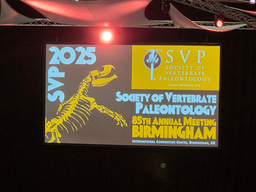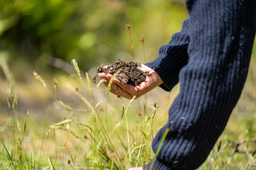Call for Papers: Ecosystem restoration, regeneration and rewilding
Published in Ecology & Evolution

BMC Ecology and Evolution is calling for submissions to our Collection on Ecosystem restoration, regeneration and rewilding.
Intact and resilient ecosystems ensure a healthy and functioning planet, yet human actions are driving unprecedented environmental changes that burden the natural world. Worryingly, just 3% of the world's land is estimated to remain ecologically intact – a clear sign that scientific evidence is urgently needed to inform policies to restore and conserve ecosystems.
Preventing, halting, and reversing the loss of nature is now being prioritized globally, with the United Nations General Assembly declaring 2021-2030 as the UN Decade on Ecosystem Restoration. In support of the United Nations’ Sustainable Development Goals (SDGs) 6: Clean water and sanitation, 13: Climate action, 14: Life below water and 15: Life on land, BMC Ecology and Evolution welcomes research on the design, application, optimization, management, and outcomes of restoration and rewilding projects in terrestrial, freshwater, and marine ecosystems.
Meet the Guest Editors
Carmel McDougall: University of St Andrews, Scotland
Dr. Carmel McDougall is a lecturer at the Scottish Oceans Institute, University of St Andrews, Scotland. With a background in molecular biology and aquaculture research, she became involved in shellfish reef restoration after stumbling across healthy oyster reefs in Australia while conducting a molecular survey of oyster biodiversity. Her research group uses comparative and functional genomics and experimental studies to provide practical outcomes for sustainable aquaculture and marine conservation, and to shed light on the evolution and diversity of the amazing repertoire of organisms found within our oceans.
Nancy Shackelford: University of Victoria, Canada
Dr. Nancy Shackleford is an Assistant Professor at the University of Victoria specializing in restoration research. She was born and raised in Texas, in traditional Jumano and Apache territory, but has been living in the Pacific Northwest, in the territories of the lək̓ʷəŋən and W̱SÁNEĆ peoples, for eight years. Her experience with restoration is diverse, from scrubby Texas woodlands, to Colorado grasslands, to cedar forests on our local coastline. She has an unshakeable love for data, knowledge, and leveraging shared work to enhance restoration outcomes. She gravitates towards terrestrial restoration in experimental and observational science, but is continually expanding her integration of the social dimensions of restoration.
Submission guidelines
This Collection will consider research, database and software articles. Review articles will be considered at the discretion of the Journal’s Editor. If you would like to submit a review article, please first email Jennifer Harman <jennifer.harman@springernature.com> - the Editor of BMC Ecology and Evolution. Please note that unsolicited reviews will not be considered as per our submission guidelines.
Datasets, descriptions and short reports relevant to the Collection will be considered by BMC Research Notes as data or research notes. This type of content will be published in BMC Research Notes and included in the final collection.
Articles under consideration for publication within the collection will be assessed according to the standard BMC Ecology and Evolution editorial criteria and will undergo the journal’s standard peer-review process overseen by Guest Editors Dr Carmel McDougall (University of St Andrews, Scotland) and Dr Nancy Shackelford (University of Victoria, Canada).
Before submitting your manuscript, please ensure you have read our submission guidelines. Articles for this Collection should be submitted via our submission system, Snapp. During the submission process you will be asked whether you are submitting to a Collection, please select "Ecosystem restoration, regeneration and rewilding" from the drop-down menu.
If accepted for publication, an article processing charge applies. Please click here to find out about our standard waiver policy.
Submission Status: Open | Submission Deadline: 7th March 2024
Follow the Topic
-
BMC Ecology and Evolution

An open access, peer-reviewed journal interested in all aspects of ecological and evolutionary biology.
Related Collections
With Collections, you can get published faster and increase your visibility.
Bioacoustics and soundscape ecology
BMC Ecology and Evolution welcomes submissions to its new Collection on Bioacoustics and soundscape ecology. By studying how animals use sound and how noise impacts them, you can learn a lot about the well-being of an ecosystem and the animals living there. In support of the United Nations Sustainable Development Goals (SDGs) 13: Climate action, 14: Life below water and 15: Life on land, the Collection will consider research on:
The use of sound for communication
The evolution of acoustic signals
The use of bioacoustics for taxonomy and systematics
The use of sound for biodiversity monitoring
The impacts of noise on animal development, behavior, sound production and reception
The effect of anthropogenic noise on the physiology, behavior and ecology of animals
Innovative technologies and methods to collect and analyze acoustic data to study animals and the health of ecosystems
Reviews and commentary articles are welcome following consultation with the Editor
(Jennifer.harman@springernature.com).
Publishing Model: Open Access
Deadline: Mar 27, 2026
Ecology of soils
BMC Ecology and Evolution invites researchers to submit their work on soil ecosystems and their implications for environmental sustainability. Soils are living, dynamic systems that support a vast array of organisms, from tiny microbes to plants and animals. They play a vital role in keeping our planet healthy by recycling nutrients, storing carbon, and helping regulate water and climate. Understanding how soil life functions and adapts is essential for tackling major environmental challenges like climate change, habitat loss, and soil degradation.
This collection of articles aims to showcase the latest research in soil ecology, emphasizing the interactions among soil organisms, biogeochemical processes, and ecosystem functions across various landscapes. We invite submissions that explore the following topics:
•Microbial and faunal diversity in soils: Patterns, drivers, and functional roles of bacteria, fungi, protists, and invertebrates
•Soil biogeochemistry and ecosystem functioning: Nutrient cycling, carbon sequestration, and soil health in both natural and managed ecosystems
•Soil-plant interactions: Rhizosphere processes, plant-microbe symbioses, and their effects on vegetation dynamics
•Land use and climate change impacts on soil communities: Responses of soil biodiversity and functions to agricultural intensification, urbanization, pollution, and climate shifts
•Soil metagenomics, phylogenetics, and functional ecology: Advances in molecular approaches for studying soil microbial and faunal communities
•Conservation and restoration of soil ecosystems: Strategies for maintaining soil biodiversity and ecosystem services in degraded landscapes
All manuscripts submitted to BMC Ecology and Evolution, including those submitted to collections and special issues, are assessed in line with our editorial policies and the journal’s peer review process. Reviewers and editors are required to declare competing interests and can be excluded from the peer review process if a competing interest exists.
This Collection supports and amplifies research related to SDG 15: Life on Land.
Publishing Model: Open Access
Deadline: Jun 02, 2026





Please sign in or register for FREE
If you are a registered user on Research Communities by Springer Nature, please sign in